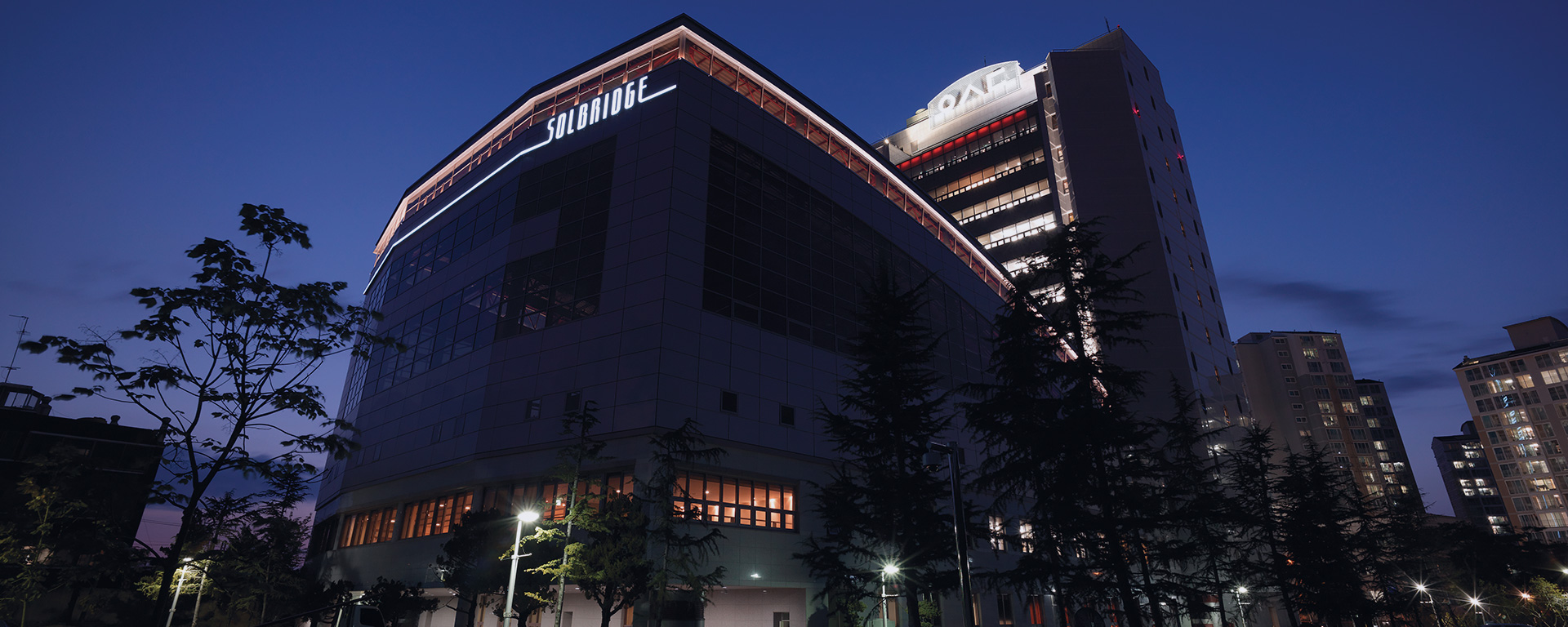Education, Research and Technology
There are few cities on the scale of Daejeon (population of 1.5 million) that can boast twenty universities and twenty-one research institutes. Best known among these powerhouses is the Korea Advanced Institute of Science and Technology (KAIST), considered one of the world’s leading technical universities. Under the leadership of President SuhNampyo, MIT’s wunderkind, KAIST has become a dominant player in applied sciences with collaboration agreements with NASA and other technology leaders. The Information and Communications University (ICU) is a center for research in telecommunications featuring the ICU-Samsung Joint Research Center. The Korean University of Science and Technology, Chungnam National University, Hanbat University, Hannam University, Woosong University, Daejeon University, SolBridge International School of Business and other universities feature first-rate scholarship in the sciences and humanities, rounding out a remarkable scholarly community. Research institutes in Daejeon include the Korea Research Institute of Bioscience and Biotechnology (KRIBB), developing advanced nano biochips, the Korea Atomic Energy Research Institute (KAERI), a leader in nuclear power, the Electronic and Telecommunications Research Institute (ETRI) whose WiBro technology has been adopted as the international standard for 3G wireless communication, the Korea Aerospace Research Institute (KARI), developer of the KOMPSTAT satellite program and the National Fusion Research Institute which just unveiled its innovative KSTAR nuclear fusion reactor.
Other research institutes include the National NanofabCenter, Korean Basic Science Research Institute, Korea Institute of Machinery and Materials, Korea Research Institute of Chemical Technology, Korea Institute of Science and Technology Information, Korea Research Institute of Standards and Science, Marine and Ocean Engineering Research Institute, Korea Institute of Geoscience and Mineral Resources, Korea Institute of Energy Research, Agency for Defense Development, Korean Institute of Toxicology, Korean Institute of Oriental Medicine, Korea Institute of Nuclear Nonproliferation and Control, National Institute for Mathematical Sciences, Korea Institute of Nuclear Safety and the National Security Research Institute.
Asia’s Corporate Innovation and Entrepreneurship Cluster
This huge pool of specialists in the advanced sciences is complemented by the personnel employed at 21 corporate research centers in Daejeon. That group includes the corporate research headquarters for new products and systems for the likes of LG, Samsung, SK, Samyang, Hanhwa and Dongbu. Daejeon also has an additional seventeen corporate research centers focusing on more specialized topics.
Daejeon is most often referred to as the “Silicon Valley of Asia” but this analogy risks obscuring the full range of technologies developed in the region, from nuclear power, automobile parts and communications technology to shipbuilding, nuclear power and machine tools. More recently, ACTS (Agency of Advanced Cultural Technologies and Services) has become a Mecca for multimedia entertainment.
The cross-fertilization between these fields produces a rich ecosystem for innovation and collaboration. Over the last fifteen years, venture companies have sprung up like mushrooms after a spring rain, numbering over 700 at last count. These venture companies cover IT, communications technology, software, biotechnology, environmental sciences, automobile parts, laser technologies and other fields.
Some of those companies have gone on to become major players and others are coming of age today.
The city supports one of the fastest developing business communities with a strong emphasis on technological innovation. The recently opened Daedeok Techno Valley on the north side of town is becoming a center for advanced venture research in IT and biotechnology, with considerable international investment.
 KOREAN
KOREAN MySolBridge
MySolBridge VMock
VMock










Get social with SolBridge
Contact Us
Get in touch with our team